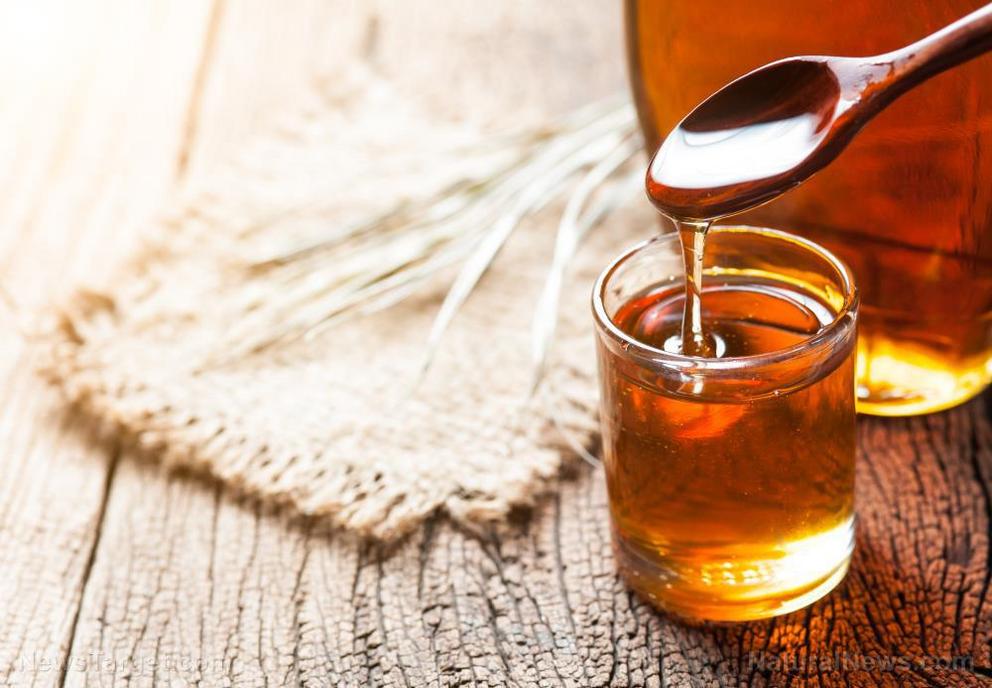Natural sugar in honey can remove fatty artery plaque, study shows
Here’s one more reason to sweeten your tea or coffee with honey: It may help prevent a heart attack.
According to a study by researchers from Washington University School of Medicine, a natural sugar in honey can activate a protein that causes immune cells to remove fatty plaque from arteries. The sugar, known as trehalose, can reduce the size of plaque by up to 30 percent, potentially lowering the risk of a heart attack.
The researchers published their findings in the journal Nature Communications.
Natural sugar in honey helps remove fatty plaque
If you frequently eat lots of fatty foods, fat can build up inside the lining of your arteries, which deliver oxygen-rich blood from your heart to the rest of your body. That buildup of fat is called plaque.
Plaque buildup characterizes atherosclerosis, a condition that causes your arteries to harden. Your arteries can also become less elastic. Consequently, atherosclerosis can put you at risk of high blood pressure, ischemic stroke and heart attack.
For their study, the researchers induced atherosclerosis in mice. They injected some of the mice with trehalose or a different type of sugar. They also gave some of the mice trehalose orally.
Their results showed that mice injected with trehalose had plaques that measured 0.25 millimeters (mm) across. In contrast, mice injected with the other type of sugar or given the oral trehalose had plaques that measured 0.35 mm.
This means that mice injected with trehalose had a 30 percent decrease in plaques. The researchers think trehalose is able to reduce plaque by activating a protein called transcription factor EB (TFEB). In turn, it causes immune cells called macrophages to remove plaque inside the lining of the arteries.
In atherosclerosis, macrophages try to fix damage to the arteries by cleaning up the fat buildup. However, they can easily get overwhelmed by the inflammatory nature of plaque.
“Their housekeeping process gets gummed up,” said study co-author Babak Razani. Trehalose gets rid of plaque by enhancing this built-in housekeeping machinery.
Overall, the study shows that trehalose in honey can effectively reduce plaque along the arteries. As such, people at risk of heart disease and other heart health-related conditions due to plaque buildup should try incorporating honey into their daily routine.
Honey is available raw or pasteurized and in various color grades. But holistic health practitioners advise opting for raw honey, which is removed from the hive and bottled directly. Raw honey is the least processed so it probably has the most antioxidants of all types of honey. Raw honey is considered safe to eat except for children under one year of age.
Foods that help prevent clogged arteries
Plaque buildup can lead to serious health problems and fatal outcomes fast if left unchecked. Thankfully, keeping your arteries clear and healthy may be just as simple as eating more heart-healthy foods.
The following foods help keep your heart healthy and prevent plaque buildup along your arteries:
- Berries – Strawberries, blueberries and cranberries are full of compounds called flavonoids, which help reduce risk factors for atherosclerosis. These include high levels of low-density lipoprotein (LDL) or “bad” cholesterol and high blood pressure. Flavonoids also help reduce inflammation.
- Beans – Fiber in beans helps to slow the absorption of cholesterol into the bloodstream. Plus, fiber serves as food for your gut bacteria, which can improve risk factors for heart disease, including cholesterol and blood pressure levels.
- Fish – Fish, especially fatty ones like salmon and tuna, are rich in omega-3 fatty acids. These fats reduce your risk of atherosclerosis by reducing inflammation and blood triglyceride levels. You can opt for omega-3 supplements derived from plant sources like algae if you’re following a vegan diet.
- Onions – The active compounds that give onions their pungent smell are also capable of reducing inflammation, improving blood triglyceride levels and reducing blood pressure.
- Tomatoes – No heart-healthy food list is complete without tomatoes. Tomatoes contain an antioxidant called lycopene, which is well-known for its anti-inflammatory properties. Lycopene can also lower your risk of atherosclerosis by raising levels of high-density lipoprotein (HDL) or “good” cholesterol.
- Citrus fruits – Oranges, limes and grapefruits are full of flavonoids, which reduce inflammation. Citrus fruits also contain fiber, which helps reduce LDL cholesterol levels.
- Cruciferous vegetables – Eating more cruciferous vegetables, such as broccoli and cabbage, may help lower your risk of atherosclerosis. It’s still unclear why this is so, but a study of 1,500 women showed that eating cruciferous vegetables was associated with lower carotid intima-media thickness, a marker of atherosclerosis.
- Beets – Beets are rich in nitrates. They are vasodilators, which means they allow blood to flow more easily. Betalains, a class of red and yellow pigments found in beets, also help fight inflammation.
- Dark chocolate – Cocoa and dark chocolate with at 70–85 percent cocoa are rich in flavonoids, particularly a subtype called flavanols. Flavanols boost nitric oxide production. Nitric oxide helps improve blood flow by causing your blood vessels to dilate or widen.
- Olive oil – Swap vegetable oil with olive oil. This Mediterranean diet staple is a great source of omega-3 fatty acids, which help protect your cells from inflammation. Like flavanols, omega-3 fatty acids also stimulate nitric oxide production for better circulation.
Honey contains a natural sugar that can help remove plaque buildup along your arteries. To add honey to your daily routine, use it in place of sugar in baked goods and beverages. Eat more heart-healthy foods as well to prevent plaque buildup in the first place.
For full references please use source link below.

